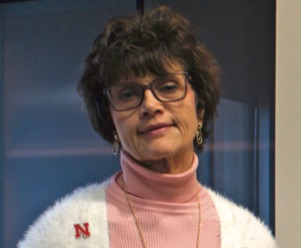
Nebraska 4-H Drives Community Youth
Programming to Keep Communities Vibrant

Nebraska 4-H provides meaningful learning opportunities to Nebraska youth that impacts the next generation of workers in Nebraska.
“The lifelong skills gained through Nebraska 4-H programming can be applied to any industry and develops youth to give back to their communities as adults,” said Kathleen Lodl, Associate Dean and 4-H Program Administrator at the University of Nebraska–Lincoln.
Nebraska 4-H teaches youth across the state, ages 9-19, how to become successful adults through camps, clubs, school enrichment activities, after school programs, workshops, and clinics.
“Every county in Nebraska offers 4-H,” Lodl said. “In 2019, one in three Nebraska youth were involved in Nebraska 4-H, in 77% of Nebraska counties, that reach was on in two – 51% grew up in a rural area, 49% grew up in an urban area.”
By teaching youth valuable life skills, students develop their passions.
“Student passions might be science, technology, engineering, math, nutrition, or agriculture,” Lodl said. “But our main goal is to help the youth succeed as an adult here in Nebraska, regardless of their interests.”
No matter the focus area, Lodl said Nebraska 4-H helps youth become successful adults. Creative thinking, problem solving, and leadership teach lifelong skills that impact their approach to work life. As such, Nebraska 4-H programming helps to grow communities across the state.
Events for Any Interest
Nebraska 4-H provides a wide variety of opportunities including robotics competitions, presentation competitions, cooking, gardening, and exhibiting livestock.
Many events allow for opportunities to learn about more than just one skill. For example, Lodl said the statewide robotics competition held in February 2020, encouraged a mix of interest areas. The robotics event also allowed youth to learn the value of hard work and dedication to a lengthy process.
“The statewide robotics competition allowed students to apply skills in science, engineering, and math,” Lodl said. “Students actively began working on their project in the fall for the competition in the winter.”
Beyond events, Nebraska 4-H also hosts camps each summer. These camps offer various career options to youth, such as veterinary science, culinary arts, as well as environmental education. The camps provide an opportunity for youth to learn new skills and meet other youth in Nebraska 4-H across the state.
Leaders Return to Communities
Nebraska 4-H develops students into adults that give back to create a positive cycle in the community.
For example, Lodl said as youth progress through the program, they have the opportunity to also serve as teachers to younger participants. The goal is to create a bond between older and younger members.
Additionally, college students who were former Nebraska 4-H members are invited back to the communities to teach others about their experiences, Lodl said. Keeping alumni involved helps strengthen the connection between the program and the communities. It is not uncommon for Nebraska 4-H youth to become leaders in their home areas.
Consequently, development offered by Nebraska 4-H also provides youth opportunities to become future employees in their home communities.
“Nebraska 4-H youth returning into their communities as leaders creates a pipeline for employers who need the essential skills that we provide,” Lodl said.
Lodl said nearly 97% of Nebraska 4-H members continue to college after high school and many choose to return to their communities after schooling is complete. These youth provide employers with the skills and the workforce they need.
Encouraging Entrepreneurship
Nebraska 4-H focuses work on youth leadership and entrepreneurship to help youth gain skills to provide back to the state of Nebraska in the future.
“Not every Nebraska 4-H member has to become an entrepreneur and start his/her own business,” Lodl said. “But many students gain an entrepreneurial spirit and creative thinking skills from their Nebraska 4-H experience.”
The entrepreneurial approach encourages youth to think creatively and give back to the community in new ways.
Urban and Rural 4-H
Nebraska 4-H has opportunities for youth in both rural and urban settings. In urban areas, programming is typically offered in a club setting or through school enrichment programs. In rural areas, the 4-H program is typically offered in community-based learning, where community members volunteer their time as leaders.
Lodl said the same learning curriculum is taught to both urban and rural communities. The only difference is the way the youth may reach the information can be different because of the setting which may be in a club or community based.
“We encourage all communities to incorporate Nebraska 4-H programming, whether in an urban or rural area,” Lodl said. “We want all interested youth to be involved and have the opportunity to develop into successful adults.”
For more information on Nebraska 4-H or opportunities to volunteer visit 4h.unl.edu.